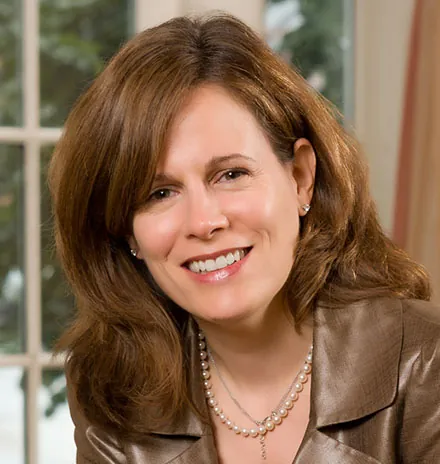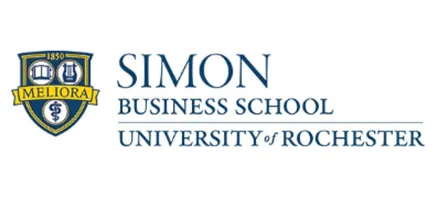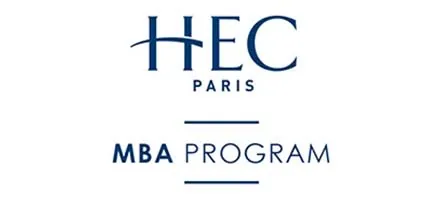
Harvard Business School
“It’s a leap of faith. But if I were a betting person from what I know and what I’ve seen, I would bet on us.”
That was the pitch by Jana Kierstead, executive director of MBA and doctoral programs at Harvard Business School, to nearly 800 admitted students on a webinar hosted by the school today (April 28). Kierstead was joined by HBS Dean Nitin Nohria and HBS Managing Director of MBA Admissions and Financial Aid Chad Losee. A few days after the school announced it would allow applicants admitted into its full-time MBA program this fall to apply for a deferral, the three leaders got on a phone call to address questions from admits. A recording of the hour-long phone call was obtained by Poets&Quants.
“I really do think this is a moment in which people have to make a leap of faith of any kind. Because if you don’t choose to come to us, you’re making a different kind of a leap of faith,” Nohria added during the phone call, half of which was spent answering questions while the remainder of the time was invested in pep-talk to encourage admitted students to enroll this fall instead of deferring. “Every person on this call will have to make some leap of faith about their own developmental journey of leaders,” Nohria continued.

Jana Kierstead, Executive Director of MBA and Doctoral Programs at Harvard Business School. HBS photo
MORE THAN ‘200 PAGES OF QUESTIONS’ FROM ADMITTED STUDENTS
On April 24th, Harvard announced it would offer admitted applicants the opportunity to apply for a deferral between May 15 and June 1. At the time, the school said that if too many admitted students applied for the deferral, some students might end up getting deferred for two years instead of just one. In the announcement, which came in an email from Nohrin and Angela Crispi, the executive dean for administration at HBS, administrators said they hope to open campus by the time students arrive this fall but they were also preparing for online or blended classes.
The announcement created anxiety for many admitted applicants, particularly those from outside the U.S. With most consulates closed or declining to process students visas, many international admits worry whether they will even be able to legally live in the U.S. by this fall. “We don’t know for our international students when visa processing will be open,” Kierstead acknowledged on the call. But, Losee said, “We’re committed to having you to have an option to start if there is not a visa.”
Plus, admitted students — both domestic and international — have been skeptical of starting a degree online or even in a blended format. The concern generated “over 200 pages of questions,” leading up to today’s webinar, Losee said at the beginning of the call.
‘THESE ARE THE TIMES YOU HAVE TO LEAN-IN AS A LEADER’
The trio first acknowledged how uncertain a time it is due to the global pandemic. Nohria noted that he didn’t even plan on being in the role of dean past commencement but has decided to stay on to lead the school through the coronavirus pandemic. “Like many of you, my plans also have to be reevaluated at this time,” Nohria admitted. “I don’t have any better understanding than any of you as to how this year will unfold for the world or how this will unfold for any organization you might be a part of today.
“There’s never been a time when I’ve felt more committed to the mission of our business school and more committed to the leadership that I’ve had to exercise on behalf of the school,” Nohria continued. “These are not moments that you look for in your life. But when these moments come, I think these are the times you have to lean-in as a leader.”
ALL ADMITTED STUDENTS APPLYING FOR A DEFERRAL WILL RECEIVE ONE
One main uncertainty facing admitted students is how, exactly, will the deferral process work? First, Losee and Kierstead said that all applicants seeking a deferral would receive one. “We’re not being selective in this,” Losee confirmed. While some details are still being worked out, Losee said admitted students could go into their HBS portal on May 15 and select if they wanted to defer or enroll later. If choosing to defer, students can give a preference as to if they want to defer one year or two years and then give an open-ended response as to why they are making that decision. Losee said they would do their best to match up the preferences but might not be able to give each admitted student their preference to meet their intended class composition. When asked to elaborate, Losee said having a balance of different voices from different industry groups and backgrounds would be prioritized.
For admitted applicants opting to defer, they have to go with whichever selection of deferment they receive. If they apply for a one-year deferral but get a two-year deferral, they’re stuck with it. Losee advised those on the phone call to take in as much information as possible and then decide if they want to be at HBS this fall or wait a year or potentially two years. “Do you want to be here in the fall or do you want to be here in one or two years,” Losee said. “Try to be thoughtful over the next few weeks.”
Admitted students outside of the U.S. are essentially being asked to commit to a B-school experience that could be online. And if they’re in certain regions of the world — say, outside of the Western Hemisphere — that could create some awkward time slots for classes. International students will have to be OK with potentially taking classes at odd times, Nohria said. “It’s not easy for us to have different versions of our curriculum at different time slots,” he admitted, adding that they will work hard to not ask international students to consistently take classes at difficult times. Still, “international students will need to be ready to take classes at hours that might be the wee hours for them,” Nohria said.
‘WE WILL BE VERY PRUDENT IN WHO WE PICK OFF THE WAITLIST’

Harvard Business School Dean Nitin Nohria
The other elephant in the virtual room was what happens if this year’s cohort lacks the international diversity of a typical HBS cohort and what happens if the school dips far down the waitlist trying to fill out the class. “We’re not aiming for this deferral to deliver to you an entirely domestic class with a domestic educational experience,” Nohria assured, adding they’re exploring ways to leverage the learning opportunities of students potentially based on different continents.
“In any case, when you offer deferrals you have less control over the exact composition of the class,” Losee admitted, but also reassured that “those students off the waitlist are very strong and capable.” and that the school is “not going to artificially try to get to a 900 number.”
Nohria noted that in the history of the school, HBS once had 600 students enroll in the fall, two-thirds of the roughly 930 students now typically enrolls. He added that 60 to 70 students per section, versus the typical 90 students in each HBS section, still would offer diversity. “We will be very prudent in who we pick off the waitlist because we never want to get to the point in the waitlist where we have anxiety about the quality,” he said.
Losee also said that the quality and international makeup of the class will inevitably be determined by the decisions of admitted students to defer or not. “The class might be a little smaller and might be a little different composition,” he said. To sweeten the pot a bit, the administrators also mentioned the $40 million in fellowship money that is directly for full-time MBA students. They also announced an upcoming pot of money specifically for MBAs entering this year that have been affected by coronavirus or a job loss.
‘WHAT IS YOUR TOLERANCE FOR UNCERTAINTY?’
Nohria and Kierstead closed the session pitching those on the call of advantages of an HBS experience this fall. “All the business schools you are going to consider are going to have to confront the same challenges,” Nohria said. “I really do think that the one thing that differentiates us is our faculty’s commitment to teaching is unparalleled,” he added, noting that he’s already seen a partnership between current students and faculty to co-create educational and social opportunities in this new reality. “That partnership and imagination of the faculty is what I think is unparalleled,” he said.
But at the end of the day, the decision is going to come down to trade-offs, Nohria acknowledged. “There are always trade-offs in any choice that people have to make,” he said. “The trade-off right now is that at some very deep level the fundamental trade-off is what is your tolerance for uncertainty?”
Uncertainty permeates every path and decision, Nohria said. “At some level, there is no complete flight from uncertainty or ambiguity at this moment,” he continued. “Whether you decide to navigate that uncertainty at Harvard Business School or some other place, it just happens to be the case that the world has dealt all of us who are living through this moment with this curveball. And you have to prepare to deal with it in some way, shape, or form, and take the trade-offs.”

HBS Admissions Chief Chad Losee
MOST STUDENTS PLANNING ON ENROLLING, ACCORDING TO HBS ADMITTED STUDENTS SLACK THREAD
For at least some international students on the call, the pitch seems to have worked. According to a poll sent to Poets&Quants from an informal Slack thread of admitted HBS students, 170 of 196 domestic and international respondents said they plan on enrolling. Just 14 domestic admitted students and 12 international admitted students said they’d apply to defer for a year. No respondents said they’d apply to defer for two years. Last Friday after the announcement, the same poll skewed heavily towards “not sure and still overwhelmed.”
One admitted international student has been skeptical that he could make it to the U.S. because of visa issues and was “feeling more relieved” than before the webinar. The admit, who asked to speak to Poets&Quants under the condition of anonymity, acknowledged that he didn’t know if or when he’d be able to obtain a visa to the U.S. But, the potential of getting deferred for two years also helped weigh in the decision. “Getting deferred for two years sounds a lot worse than a virtual start which I believe we’ll be able to collectively make a great one if it has to be that way,” the admitted student said in an email to Poets&Quants.
Asked how other international admits were leaning, he believed that most would sign up to come to HBS this fall. “Actually enrolling this year seems to be the trend now,” he said, adding: “Let me just say that the pep talk worked.”
‘I’VE SEEN THE SOUL OF THIS INSTITUTION COME THROUGH IN TIMES LIKE THIS’
The “pep talk” concluded with a final pitch from Kierstead.
“Part of it is really just understanding and self-assessment on how much risk you can tolerate, knowing there is risk on both sides. I know what we’re (HBS) capable of. And I know it can be pretty extraordinary. Time and time again I’ve seen the soul of this institution come through in times like this.”
DON’T MISS: MOST SCHOOLS TAKE A HARD LINE ON DEFERRALS FOR MBAs or THE HBS MBA OFFICIALLY HAS A STEM PATHWAY









